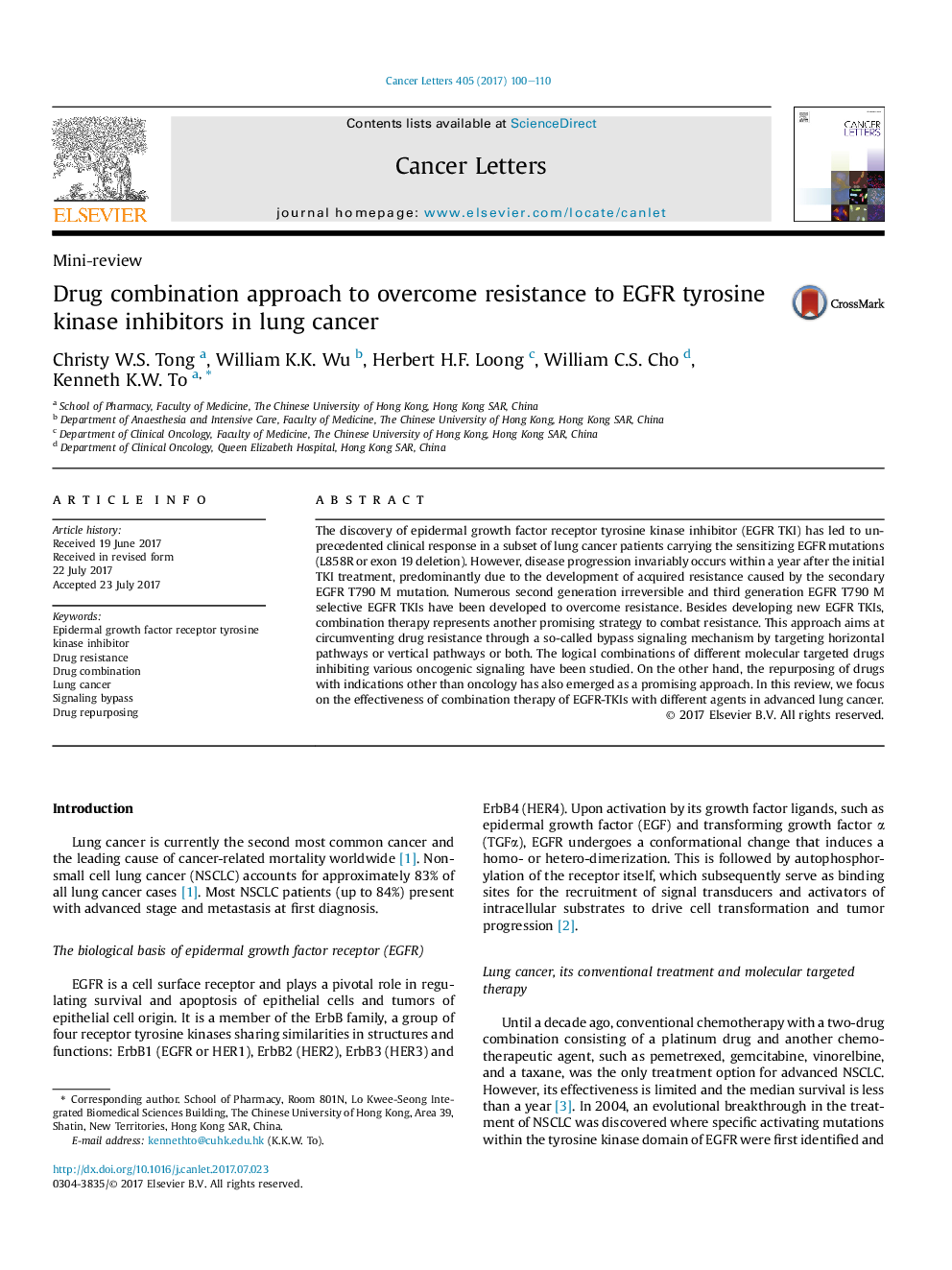| Article ID | Journal | Published Year | Pages | File Type |
|---|---|---|---|---|
| 5525197 | Cancer Letters | 2017 | 11 Pages |
â¢Drug combination represents a promising strategy to combat resistance to EGFR TKIs.â¢Molecular targeted anticancer drugs can be combined to circumvent drug resistance.â¢Drug for other indications can also be repurposed to combat resistance to EGFR TKIs.â¢Drug combinations target horizontal and/or vertical pathways to overcome resistance.â¢Beneficial combination effect was only observed in specific cancer population.
The discovery of epidermal growth factor receptor tyrosine kinase inhibitor (EGFR TKI) has led to unprecedented clinical response in a subset of lung cancer patients carrying the sensitizing EGFR mutations (L858R or exon 19 deletion). However, disease progression invariably occurs within a year after the initial TKI treatment, predominantly due to the development of acquired resistance caused by the secondary EGFR T790Â M mutation. Numerous second generation irreversible and third generation EGFR T790Â M selective EGFR TKIs have been developed to overcome resistance. Besides developing new EGFR TKIs, combination therapy represents another promising strategy to combat resistance. This approach aims at circumventing drug resistance through a so-called bypass signaling mechanism by targeting horizontal pathways or vertical pathways or both. The logical combinations of different molecular targeted drugs inhibiting various oncogenic signaling have been studied. On the other hand, the repurposing of drugs with indications other than oncology has also emerged as a promising approach. In this review, we focus on the effectiveness of combination therapy of EGFR-TKIs with different agents in advanced lung cancer.
